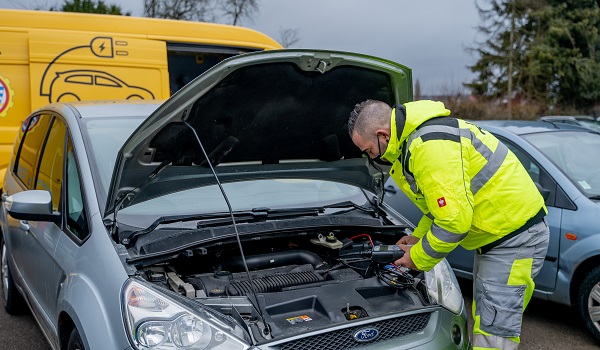 Credit: ACL
Credit: ACL
The Automobile Club du Luxembourg (ACL) has reported that the number of its interventions and repatriations (related to vehicle breakdowns) increased by 3% and 69% respectively between 1 January and 30 September 2022.
The ACL provides assistance throughout Europe to some 195,000 members. Since the beginning of the year, about a quarter of ACL members have used its services (more than 49,000 services provided between 1 January and 30 September).
As in previous years, interventions for discharged 12V batteries were the most frequent. As ACL Director Jean-Claude Juchem pointed out: "Our patrollers change 3,200 12V batteries per year, a figure that is constantly increasing. That's more than eight batteries every day".
To restore driver mobility, ACL members can count on 30 intervention vehicles. In all, every day and at any time, 50 repairmen, mechanics and lorry drivers, who receive continuous training three to four times a year, travel Luxembourg's roads. In addition, 40 operators respond in at least seven languages to people in distress from the ACL call centre in Bertrange.
The ACL noted that the end of the COVID-19 pandemic has encouraged people to travel more with their personal vehicles. Since the start of 2022, for example, motorists have bought 13,276 vignettes for Austria (up 52.7% compared to 2021) and 18,556 vignettes for Switzerland (up 8.1%) (figures as of 30 september 2022).
At the same time, the vehicle fleet is aging and the risk of breakdowns is increasing accordingly. The lack of new vehicles available on the market (due to the shortage of semiconductors) and the tendency to postpone purchases in a context of crisis and uncertainty are only accelerating the situation, argued the ACL. Moreover, according to the most recent figures from the National Society of Automotive Traffic (Société nationale de circulation automobile - SNCA), for the first time, registrations of used cars were higher (58.2%) than those of new cars (41.8%).
The inflationary context has also has a significant impact on the cost of assistance provided to ACL members. In addition to the wage indexation, the average cost of membership applications abroad have increased by 34% in one year. As for the cost of fuel, the ACL has witnessed an increase of 66% compared to 2021.
With a fleet consisting of of 10% electrified vehicles, of which only 2.7% are 100% electric, the objective of 49% electrified vehicles by 2030 seems difficult to achieve. Today, diesel engines represent the majority of cars on the road, noted the ACL. By replacing conventional diesel with HVO diesel, it is possible to immediately reduce CO2 emissions by up to 90 %. However, it is surcharged and sold on average at €2.85 per litre, added the ACL, which argued that it was up to elected officials to immediately consider access to alternative energy sources to electricity.








